Sick of the heat? Here's how to keep your home cool, heatwave or not, if you don't have AC
These manageable tips restore comfort without AC


Design expertise in your inbox – from inspiring decorating ideas and beautiful celebrity homes to practical gardening advice and shopping round-ups.
You are now subscribed
Your newsletter sign-up was successful
Want to add more newsletters?

Twice a week
Homes&Gardens
The ultimate interior design resource from the world's leading experts - discover inspiring decorating ideas, color scheming know-how, garden inspiration and shopping expertise.

Once a week
In The Loop from Next In Design
Members of the Next in Design Circle will receive In the Loop, our weekly email filled with trade news, names to know and spotlight moments. Together we’re building a brighter design future.

Twice a week
Cucina
Whether you’re passionate about hosting exquisite dinners, experimenting with culinary trends, or perfecting your kitchen's design with timeless elegance and innovative functionality, this newsletter is here to inspire
With rising temperatures becoming the norm, keeping your home cool without AC is becoming a year-round priority, especially as air conditioning becomes too expensive or impractical for many spaces.
Heatwaves are arriving earlier, lasting longer, and hitting harder, and the cost-of-living crisis means that running energy-hungry cooling systems isn’t always an option.
From clever shade solutions to improving airflow, there are plenty of strategies that can help you stay comfortable. And for those who need quick relief while longer-term fixes take shape, the best fans can make all the difference.
How to cool a home fast in a heatwave
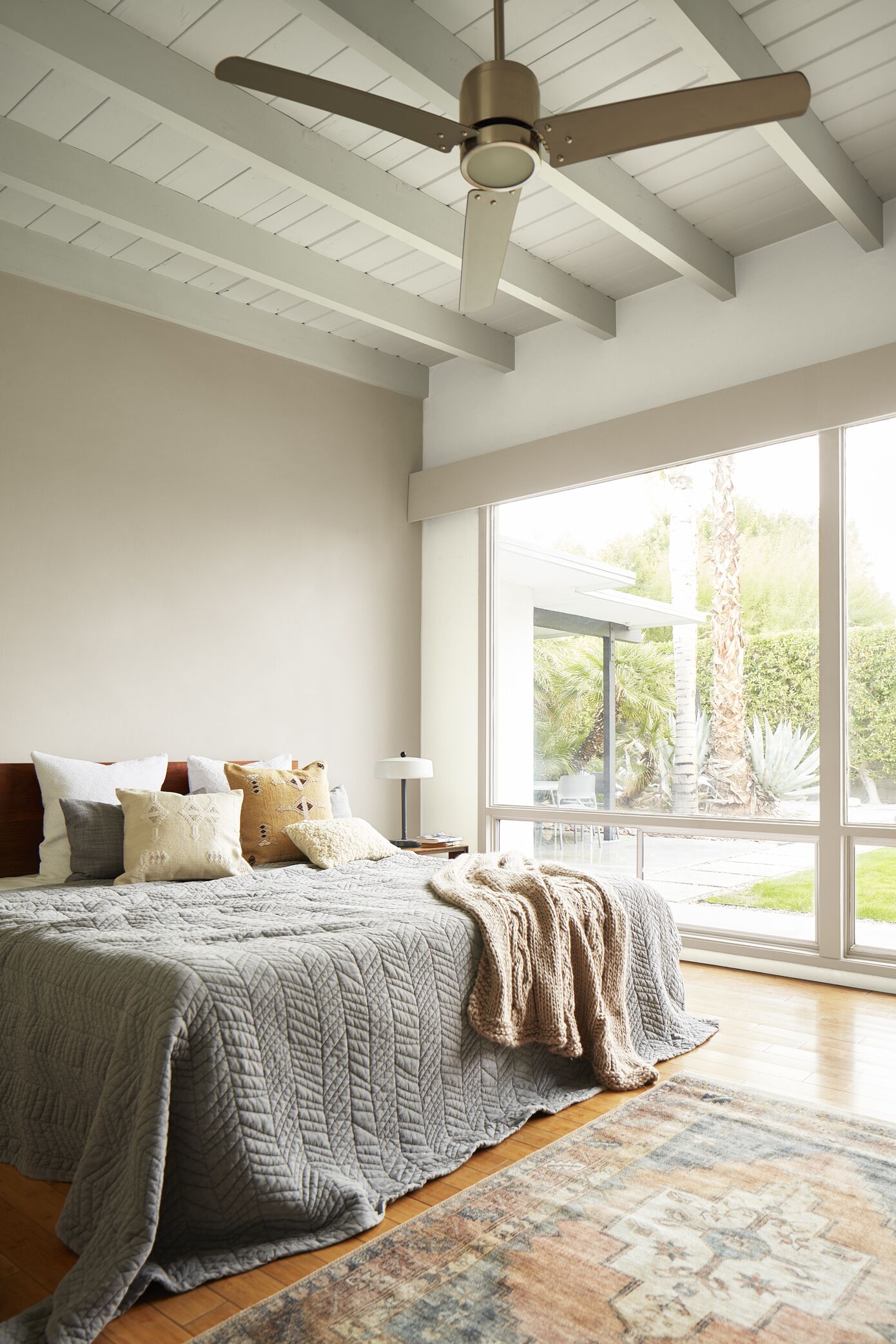
Ceiling fans are invaluable if you have no AC.
1. Invest in portable air conditioners
Portable AC units offer a versatile, affordable cooling solution for a DIY Cool Room or for use across different spaces, such as bedrooms or kitchens, when needed.
The main benefit of these systems is that little installation is needed; however, they have limitations. Cooling capacity is often lower than central air units, and they might be less efficient and noisier.
- Portable AC Units: 'A portable air conditioner is a freestanding cooling unit meant to be moved from room to room,' explains Lisa Purvins, HVAC expert and owner of Pro-Tech. 'Portable air conditioners sit nicely on wheels for ease of movement and portability and are an excellent choice for people who live in apartments, rent homes, or just want to cool down a specific space without installing a whole-home system.' This differs from window units that are fixed in place.
- Window AC Units: Window air conditioners are installed directly onto the window frame, with the unit's condenser sticking out of the window. They're fixed in place and don't drain the excess water they capture. Instead, condensation drips down to the pan on the bottom of the unit, where it's then distributed by a fan, throwing it against the condenser coils. They are typically more energy-efficient and cost-effective for cooling larger areas consistently.
- DIY evaporative coolers: An evaporative cooler uses a fan to blow cool air generated by a melting bucket of ice around a room. This form of DIY air conditioner is very affordable, but it works best if you are sitting in front of it, doing little to lower the temperature of a whole room.
If you do decide that something more permanent is in order, we have also broken down all you need to know about installing AC in your home.
2. Create natural airflow
Beatrice Flores, home care expert from Living Pristine, says the only thing better than one fan is using two fans to create a cross breeze and boost natural air flow from open windows.
Design expertise in your inbox – from inspiring decorating ideas and beautiful celebrity homes to practical gardening advice and shopping round-ups.
To create this cooling cross breeze, position one fan to blow air out of a window on one side of the room, and another fan to draw air in from a window on the opposite side, to promote continuous airflow, and help to expel hot air from the room while drawing in cooler air from outside.
'This will direct the airflow from both fans across the room, cooling the air quickly,' explains Beatrice. 'Additionally, the fans will help to circulate the cool air throughout the room, ensuring that all areas are evenly cooled.'
The compact Amazon Basics Air Circulator Fan available at Amazon is ideal for this. You can create this with two open windows at opposite ends of the house, as well.
It is worth paying attention to the direction of the sun when opening windows, too. The north side of your house usually receives little to no direct sunlight for the majority of the day, so it is recommended that you open these windows to allow cooler air to circulate within the home.
At the same time, close all windows and curtains, shades, or shutters on the south side of your house to block out the sun.
3. Block heat from windows
While one of the best parts of summer is the increase in natural light, the sun coming in through our windows is one of the major culprits for uncomfortably hot temperatures.
Blocking heat out is, then, one of the best ways to reduce indoor temperatures without an AC. For this, you have x options:
- Blackout/thermal curtains: Lane Martin, co-founder of Modern PURAIR, explains, 'Quite a lot of people think they're just for blocking light, but they can also act as a barrier that slows heat from coming in through the windows, especially during the hottest parts of the day. If you keep them closed when the sun is shining directly on your windows, they'll reduce the amount of radiant heat that gets into the room.'
If you need a quick fix, portable blackout curtains from Amazon are affordable, usually costing $20-40, quickly and easily suction onto your windows, and can be removed without damage. - Window film: Window films, at Amazon, work like a pair of sunglasses to block infrared and ultraviolet radiation from entering your home. David Flax, president of Window Genie, explains, ‘Installing reflective window films will block a large amount of solar heat while allowing natural light to pass through.'
- Aluminium foil: Much like window film, putting foil, available at Walmart, on your windows works to cool down rooms because it not only blocks light, but also reflects light and heat away from your home. It's a renter-friendly hack as no permanent changes are needed and it only takes five minutes to put up.
- Exterior awnings and shutters: ‘Awnings and shutters are examples of exterior solutions that can produce shade and reduce exposure to direct sunlight,’ says Elizabeth Grace, founder of Dream Home Making.
- Caveman method: Completely blocking out all sunlight is also called the 'caveman cooling technique'. You create a cozy, completely dark 'cave' that is safe from solar heat transfer to survive heat without AC. You might set this up in a basement, south-facing room or apply it to the upper floors of your home, which will usually be hotter without intervention.
4. Cool your body
If you want to easily save money on energy bills, focus on cooling your body down, rather than the whole room.
- Use damp towels: To help cool down your skin directly, you can dampen face cloths, such as these cotton cloths from Amazon, and leave them in your refrigerator to help chill them. These can then be applied to your face, chest, and neck to help naturally lower your body temperature.
- Opt for lightweight fabrics: One of the best ways to sleep in warm weather without spending is to change your bed linens to lightweight fabrics to help your skin breathe through the night.
Similarly, wearing light, loose-fitting clothing made of breathable materials such as cotton and linen is key to keeping cool in hot weather. - Drink plenty: During hot temperatures, it is vital that you drink water even if you're not thirsty so that you stay hydrated. To prevent dehydration, have a water bottle nearby as you go about your day. Drinking one sip every 15 minutes is a great tip to space it out. Adding electrolytes, such as Fast Up from Amazon, tried and tested by one of our chronically ill editors, Punteha van Terheyden, will help keep your body's essential minerals balanced and your body fully hydrated.
- Eat cool meals: Lisa Roberts, registered dietitian, says, ‘Eating light, cold meals and staying hydrated can help regulate your body temperature during a heatwave. Opt for refreshing foods like salads, chilled soups, and fruits with high water content.’
- Take cool showers: Taking cold showers to lower your body temperature provides instant relief. If you find it difficult to adjust to a cold shower, start with lukewarm water and gradually decrease the temperature as you go.
How to keep a home cool all summer
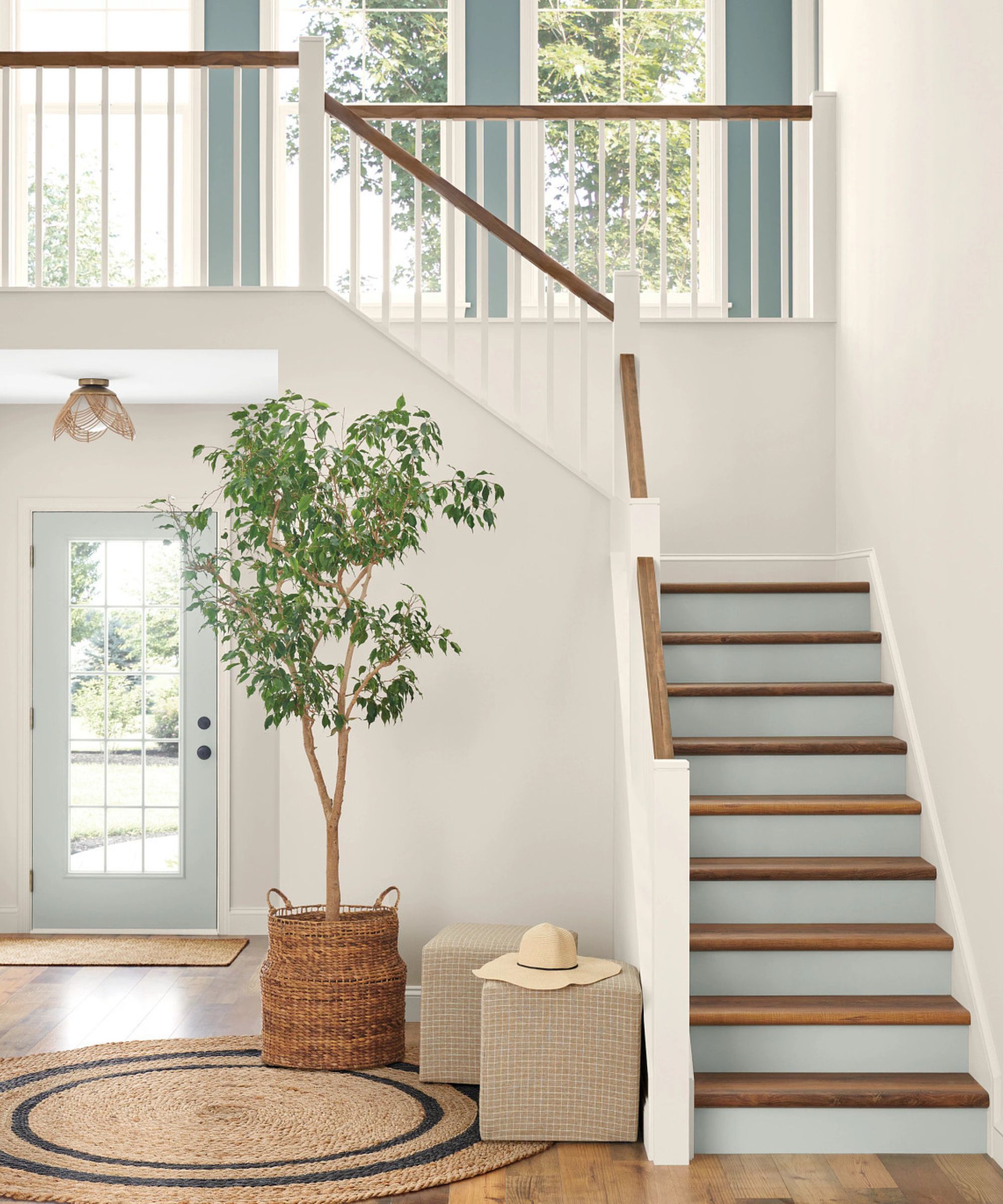
Incorporating longer-lasting techniques can keep you comfortable all summer long.
1. Rethink airflow patterns
Ceiling fans aren't just there to add some rustic charm to your space. 'Ceiling fans are a great way to help promote circulation and balance airflow,' Michael explains.
During summer, ceiling fans can play a big part in keeping a home cool in a heatwave. For example, if you change your ceiling fan to run counterclockwise, it will draw hot air up and away from you while fanning cooler air downwards. It's why most people use them when their AC is on.
This is why Michael Wandschneider, director of product management at Marvin suggests checking and sealing gaps around windows.
Along with windows, you should also check for drafts under any external doors, as you might also need to draft-proof an entryway. To do so quickly, a draught stopper, like this easy-to-attach Vellure® Door Draft Stopper for Bottom of Door available at Amazon, could work.
Even draft-proofing your keyhole will help keep temperatures indoors more comfortable. It's also worth learning how to draft-proof a bathroom and how to draft-proof a fireplace to stop any cool air from escaping.
2. Use light-reflecting decor
As interior designer Rachel Blindauer says, 'Where sunlight is strong year-round, paint isn't just about color – it's about comfort. A well-chosen tone can help reduce heat absorption and soften the feeling of brightness in a space.'
- White: It should come as no surprise that white room ideas are high on our list of colors that repel heat. Dark colors retain heat, so white is the best option if you want to stay cool indoors.
- Blue: Pale tones of blue are also among the best colors that repel heat, particularly when paired with cooling a room with fans. However, not all blues are the same. Deeper, green-tinted marine blues can retain heat and make your home feel too hot.
- Yellow: Yellow might seem like an unusual choice, but this bright color works well for handling summer temperatures as it absorbs less heat and reflected around 90 percent of light and heat waves. It is a surprisingly fresh and cooling color.
3. Reposition furniture
It might not sound effective, but rearranging your space can help to cool a space without hiking up your energy bills by improving ventilation and controlling sun glare.
To create cooling pathways, declutter your home, then create air and moisture channels:
- Ensure that large pieces of furniture, such as sofas, beds, or bookshelves, do not obstruct vents or windows.
- Leave enough space between furniture and walls for air to circulate.
- Move furniture out of the path of direct light, especially those with materials that will absorb more heat, such as dark-colored, metal, leather or faux leather, synthetic fabric, or glass furniture.
- Cross ventilation is also important – rearrange your room to create open pathways between vents and windows, allowing breezes to flow when the temperature drops in the evenings.
- Hang the best air-cooling houseplants, that naturally cool the air – such as aloe vera, ferns, and snake plants – strategically to improve circulation and provide shade. These plants increase humidity, improve airflow, and reduce stagnation, subtly lowering the room temperature.
'These setups can significantly cool a room overnight, reducing the temperature without air conditioning,' adds Josh Mitchell, Founder of Air Conditioner Lab. 'Position furniture to create a clear path between opposite windows or doors to encourage a natural breeze.'
You can also open a window upstairs and one downstairs to create a 'chimney effect' and allow hot air to escape, or two windows on the same floor at opposite ends of the house to help air pass through.
4. Insulate your home
Insulating and draft-proofing a home is not just for winter. It can play a big role in keeping heat out in summer, explains Patrick Garner, heating engineer at Heatable.
He says, ‘Poor insulation is another major cause, with insufficient insulation letting all that lovely cool air escape and inviting the heat in. Homeowners can save an average of 15% on heating and cooling costs by adding insulation in attics, floors over crawl spaces, and accessible basement rim joists.
‘And don’t forget about those sneaky gaps around windows and doors,’ he adds. ‘Unsealed cracks let warm air sneak in and cool air escape. Sealing these with weather stripping, available at Walmart, or caulking, also from Walmart, can make a big difference for homes willing to seal leaks, able to make their homes as much as 20% more energy efficient.'
Cooling problem areas
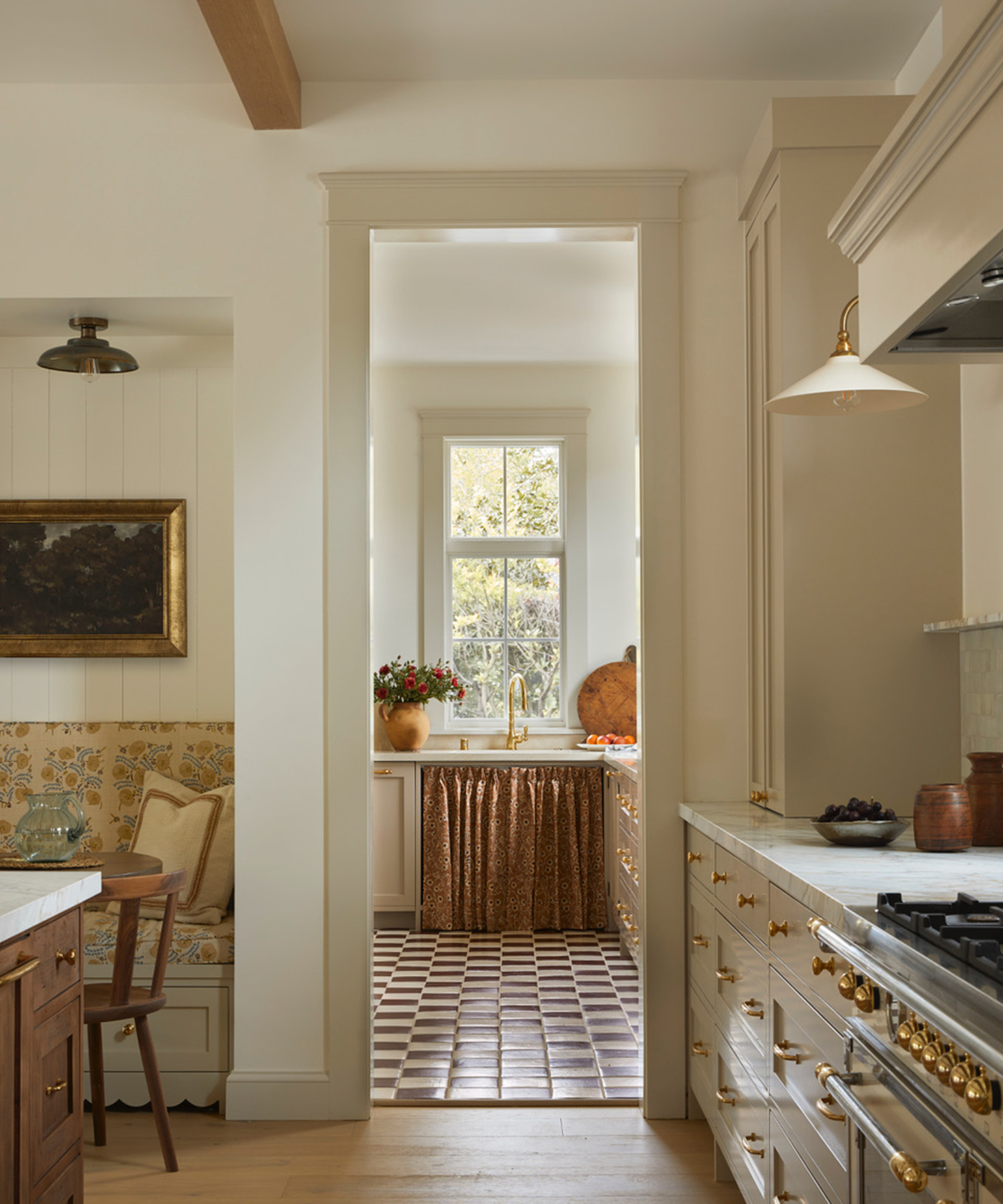
Some rooms are harder to cool than others.
1. Attics
Being subject to sunshine all day, attics are notoriously difficult to keep cool, especially considering that heat rises.
Luckily, there are five key ways you can keep this cooling problem area more comfortable:
- Maximize insulation: Jon Bonnar, managing director at Cotswold Energy, says, 'Insulation acts like a blanket for your home by trapping heat during the winter and keeping warmth out during the summer. There are various types of insulation to choose from, including fiberglass, wood fiber, cork, and superbead, each with different considerations to evaluate, such as the cost to insulate an attic.
- Improve natural ventilation: To ventilate an attic, consider installing strategically placed skylights, roof vents, or windows that can be opened to allow hot air to escape and cooler air to circulate. Josh Mitchell adds, 'Ceiling fans can also help circulate air within the attic, creating a breeze that makes the environment feel cooler. Ensure your ceiling fan is set to rotate counter-clockwise to feel the effects.'
- Use reflective roofing: Jon continues, 'A low-cost and low-tech solution to keep your attic cool is painting your roof white and adding a special reflective coating on top. This will reduce the heat absorbed through your roof by acting as a heat shield, typically lowering the temperature inside your home by up to five degrees Celsius.'
- Block light from windows: Using window treatments and coverings is another great way to keep your attic warm in winter and control heat in summer.
Blackout blinds, reflective window coverings, or thick curtains can block intense sunlight and decrease heat build-up during scorching summer days.
2. Upper floors
Upper floors can be just as hot as attics, with heat from lower floors (and activities such as cooking) escaping upwards.
To cool these vital living spaces and cool down bedrooms fast, experts suggest you:
- Close curtains: Lane Dixon, VP operations and HVAC expert at Aire Serv, reiterates, 'One of the best ways to keep it cool is to close the home’s drapes, curtains, blinds, or window coverings to block the sun’s rays and reduce the mid-day increase in temperature of the home.'
- Change ceiling fan directions: Lane continues, 'Counter-clockwise circulation of fan blades in the summer pushes cool air down to the floor, producing a wind chill effect on the skin and making a room feel up to eight degrees colder to those underneath.'
- Insulate attic doors: If you have an attic, Josh Mitchell says, 'Attics can reach temperatures of 120 to 140 degrees Fahrenheit in the summer, and if the door or hatch isn’t sealed well, that heat can move into the living space,' he explains. 'This forces your air conditioner to work harder, raising energy use and reducing the system’s lifespan. Even small gaps around a pull-down ladder or hatch can allow hot air to move into the hallway or upper-level rooms. Sealing those gaps and insulating the door can stop that from happening.' We recommend this Transparent Weather Sealing Tape available at Amazon, or this Attic Door Insulation Cover available at Amazon for this.
3. Apartments
Apartments without AC can be tricky to keep cool in summer. You can't install a permanent cooling system, and you have the heat from apartments on either side of you to contend with, too.
The first step is to block solar heat transfer through blackout thermal curtains, or renter-friendly window film, from Walmart.
Fans can also help. Josh Mitchell recommends placing your fan behind a wet sheet or towel to help circulate cool air – especially when paired with the best fan you can afford. We highly recommend the Shark FlexBreeze fan from Best Buy, as it can be used both cordless and plugged in for easy transportation around your apartment. Otherwise, try a portable AC unit, such as the top-rated KISSAIR Portable AC, from Walmart.
If you are not in control of your apartment's heating system, turn down the dampers to reduce any heat flow. It can also help to cover your radiators with Reflective Insulation Foam from Amazon. It does not take up much space in your room, is simple to install, and reflects heat back to the walls.
4. Living rooms
Besides closing curtains, you can try making a DIY evaporative cooler to help in the living room.
Josh Mitchell shares, ‘In one particular apartment, I noticed that my living room was always hotter than the bedroom because of its location. I hung a wet sheet over the entrance to the living room and placed a fan behind it, so the cool air generated from the cold, damp sheet was blown into the living room.'
5. Windowless rooms
Most of the time, when we are a little too hot, we simply throw open a window and enjoy the nice breeze – but what if your room doesn't have windows? Or the windows don't open?
While the first choice would be to opt for a portable AC unit, you can also try running any ceiling fans counter-clockwise.
For a more permanent fix, Mark McShane, HVAC expert and trainer at Skills Training Group suggests installing a ductless mini-split system.
He explains, ‘A ductless mini-split system can be a great solution for cooling down a room without windows. These systems are designed to provide both heating and cooling and can be mounted on a wall or ceiling to provide chilly air without the need for vents.
‘I would advise, however, to have a professional install this system to get the maximum benefit,' he adds. 'This can also mitigate some health and safety aspects of installing such a feature yourself.'
It can also help to reduce heat generation inside the room. Turn off unnecessary electronics, choose energy-efficient appliances which are less likely to expel energy through heat, and either turn off lights or switch to energy-saving light bulbs, at Amazon
Common cooling mistakes to avoid
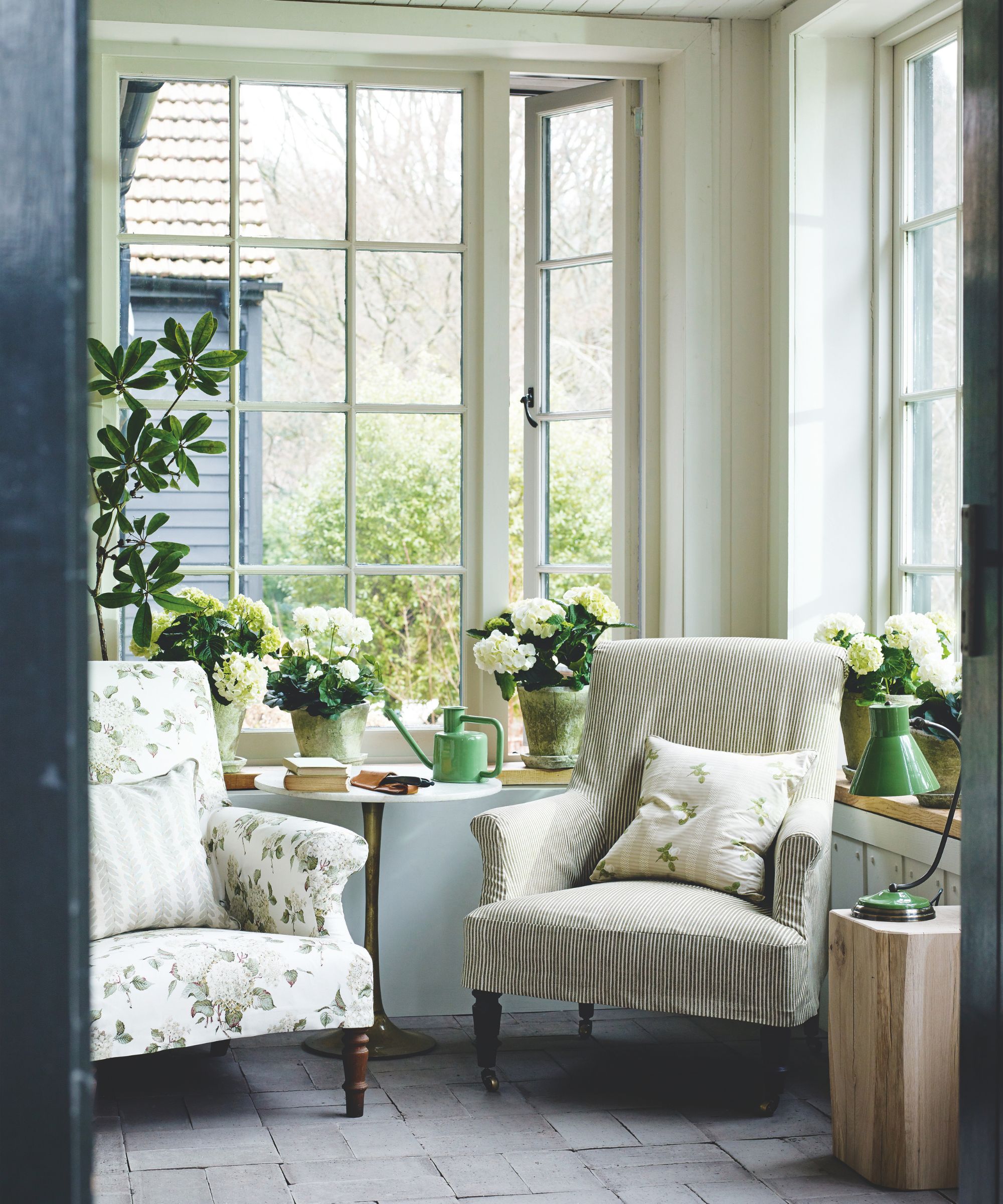
Even simple mistakes can make a lot of difference to the heat and comfort of a home without AC
1. Doors: Open or shut?
When you do not have AC, Allen Chenault, heating, ventilation and AC expert at AC's Heating & Air says, 'I always recommend keeping interior doors open during summer, especially in two-story homes. This allows cool air to circulate properly between rooms and levels, maintaining an even temperature.'
Keeping the temperature more consistent will also prevent hotspots in your home.
You should only leave doors closed if you have an air conditioning unit or if you are using a portable AC and want to feel the most benefit in the room you are currently using.
On that note, it is best that you also leave exterior doors (including garage doors) closed to avoid inviting pests into your home and maintain security. There are plenty of better ways to keep your garage cool in hot weather that don't come with any risks.
2. Running fans the wrong way
Ceiling fans can run in two directions to create different draft effects.
Yashar Mosaferi, HVAC expert and president of Klondike AC, urges you to run the fan counter-clockwise to help pull hot air up and away from you, rather than pushing warmer air down.
To do this, there is usually a small switch on the ceiling fan unit to flip.
3. Not insulating
A heatwave doesn't sound like the best time to be trying out some draft-proofing tips, but blocking up gaps and cracks around your home does just as good a job keeping hot air out as it does keeping cool air out in winter, reminds Mason Duckett, comfort specialist.
He explains, ‘Homeowners should check weather strips around their doorways and windows. Properly insulating points of entry in the home will help keep the heat outside in the warmer months.
'Some homeowners utilize film or bubble wrap to help reduce the number of drafts from windows and insulate the home during the hot summer months without having to go all out on the home renovations.'
4. Generating heat
It's essential to avoid adding more heat to your home when trying to cool it down if you don't want to spend anything.
The major producers of heat are usually your cooking appliances, such as your ovens and stovetops, and your tumble dryer too, explains Kodi Wilson, HVAC expert, and campus director at the National Technical Institute.
These appliances can drastically increase your home's internal temperature, and make your cooling appliances, such as fans or ACwork hard – costing you more money in the long run.
Try cooking with one of the best non-toxic air fryers, turn to light bites, or put your best slow cooker in play.
5. Leaving windows open all day
Opening your windows when your house is hot makes a lot of sense – so long as the air outside isn't the same temperature or even hotter.
Josh Mitchell says, ‘Instead, keep your windows, curtains, and blinds closed during the hottest part of the day and only open them in the early morning or late evening when the temperatures are cooler,’ he recommends, ‘especially when trying to cool your home using an AC, dehumidifier, or air purifier.’
6. Not dehumidifying
Humidity is one of the main causes of that uncomfortable sensation in the air on a hot day. The solution? A dehumidifier such as the Pure Enrichment Deluxe Dehumidifier, from Target, says Taras Stomin, HVAC account manager at Home Alliance.
‘Excess humidity can make a room feel warmer. Consider using a dehumidifier to remove moisture from the air, which can help make a room feel cooler by making it easier for you to breathe and sweat, making the room more comfortable,’ he suggests.
Just be sure to avoid some common dehumidifier mistakes to get the most out of your machine when you need it most.
Home cooling essentials
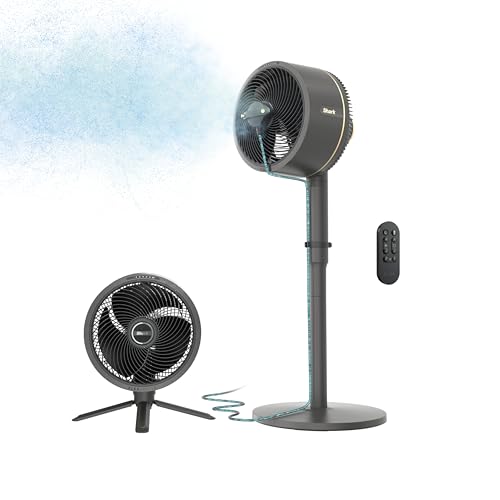
Looking for a bigger fan? The SharkFlexBreeze is Homes & Gardens' number one fan, thanks to the fact it can be used indoors and outdoors, corded or cordless, and as a pedestal or tabletop fan. The battery can also last up to 24 hours.
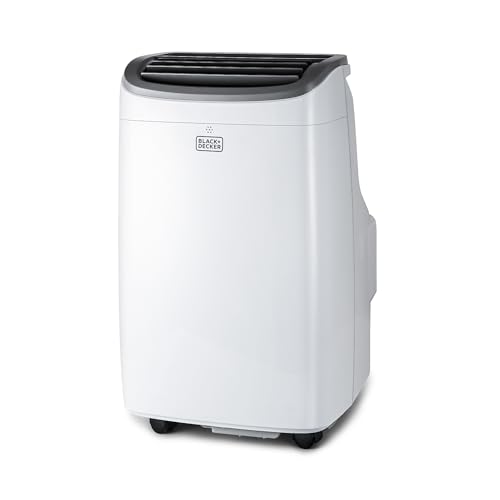
With its 25,000 five-star reviews, this portable AC unit also functions as a dehumidifier.
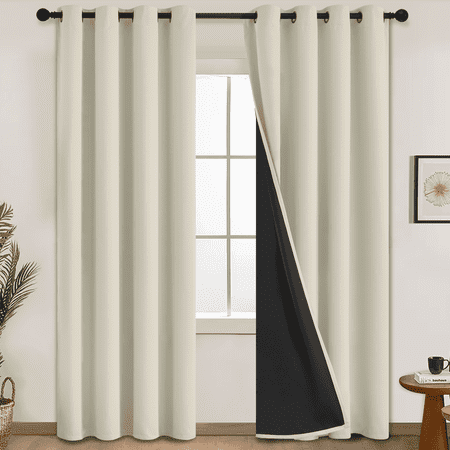
Constructed with two layers of high-quality polyester fabric, these curtains achieve 100% blackout, blocking all sunlight and UV rays.
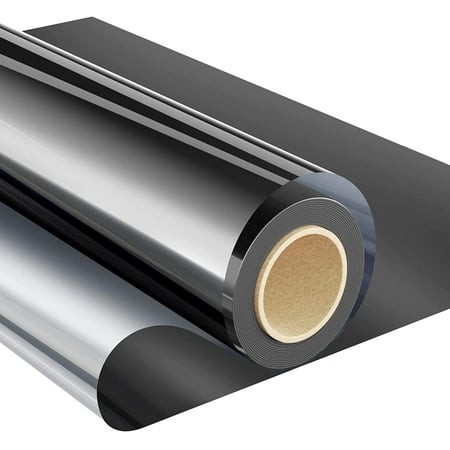
This reflective heat film doubles as privacy film, help to block up to 80% of UV and infrared rays for a cooler home and stop neighbours from peering in.

ToLife dehumidifier utilize semiconductor condensation technology, ensuring quiet operation while effectively extracting moisture from the air. This advanced feature helps keep humidity levels below 45%.
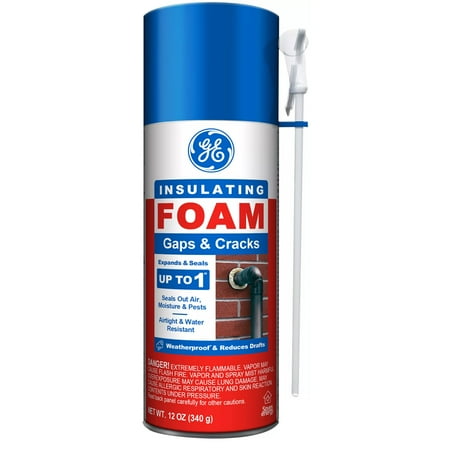
Insulating foam expands on application to fill gaps up to one inch in size, preventing air transfer for a cooler home in summer, and a warmer home in winter.
Your home is not the only place you should be focusing your efforts for cooling your home. Brush up on how to keep your shed cool in a heatwave to protect important tools and gardening supplies, and how to cool a pool so you have somewhere nice to cool off.

Chiana is Homes & Gardens’ kitchen appliances editor. With a lifelong passion for cooking and baking, she grew up experimenting in the kitchen every weekend with her baking-extraordinaire Mom, and has developed a great understanding of how tools and appliances can make or break your ideal relaxing kitchen routine.